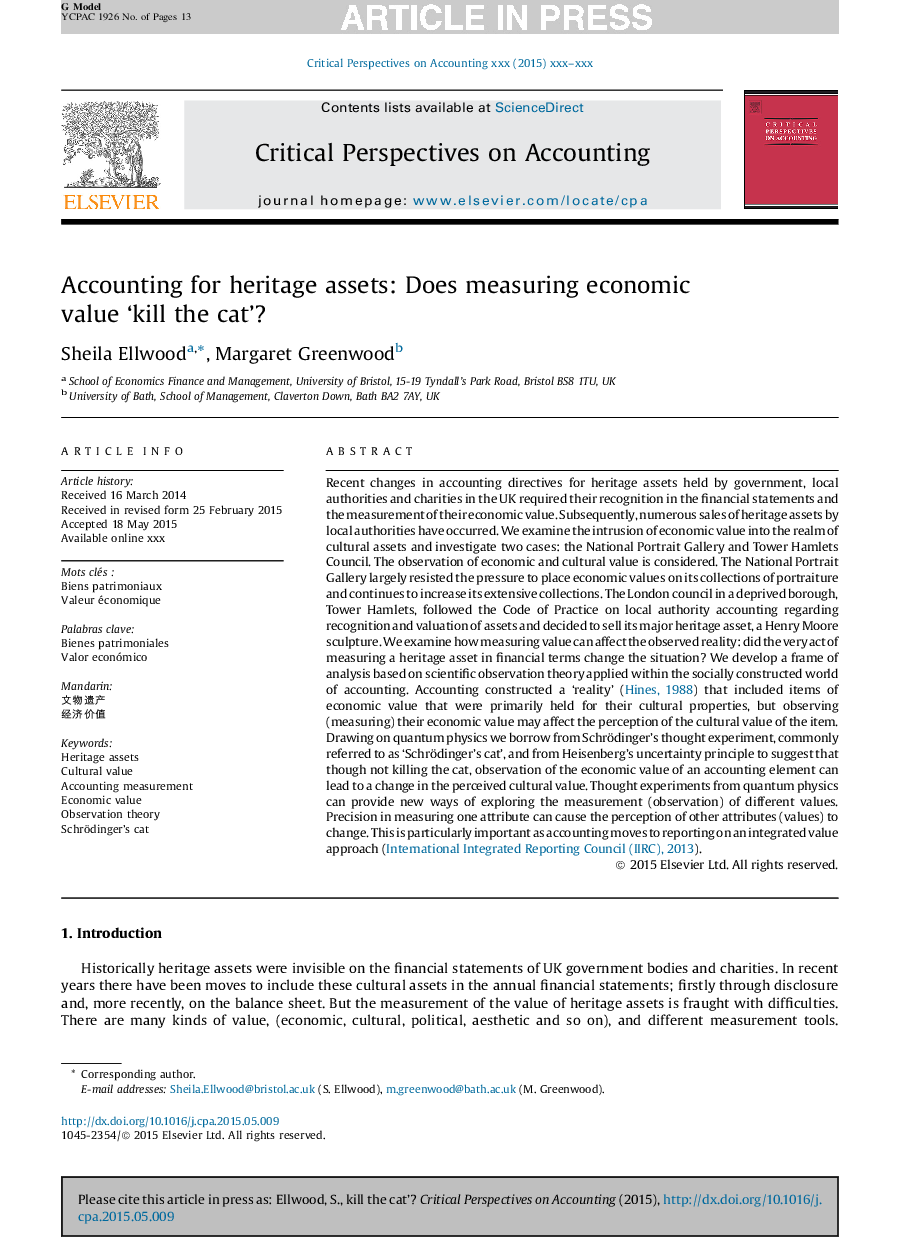| Article ID | Journal | Published Year | Pages | File Type |
|---|---|---|---|---|
| 7412175 | Critical Perspectives on Accounting | 2016 | 13 Pages |
Abstract
Recent changes in accounting directives for heritage assets held by government, local authorities and charities in the UK required their recognition in the financial statements and the measurement of their economic value. Subsequently, numerous sales of heritage assets by local authorities have occurred. We examine the intrusion of economic value into the realm of cultural assets and investigate two cases: the National Portrait Gallery and Tower Hamlets Council. The observation of economic and cultural value is considered. The National Portrait Gallery largely resisted the pressure to place economic values on its collections of portraiture and continues to increase its extensive collections. The London council in a deprived borough, Tower Hamlets, followed the Code of Practice on local authority accounting regarding recognition and valuation of assets and decided to sell its major heritage asset, a Henry Moore sculpture. We examine how measuring value can affect the observed reality: did the very act of measuring a heritage asset in financial terms change the situation? We develop a frame of analysis based on scientific observation theory applied within the socially constructed world of accounting. Accounting constructed a 'reality' (Hines, 1988) that included items of economic value that were primarily held for their cultural properties, but observing (measuring) their economic value may affect the perception of the cultural value of the item. Drawing on quantum physics we borrow from Schrödinger's thought experiment, commonly referred to as 'Schrödinger's cat', and from Heisenberg's uncertainty principle to suggest that though not killing the cat, observation of the economic value of an accounting element can lead to a change in the perceived cultural value. Thought experiments from quantum physics can provide new ways of exploring the measurement (observation) of different values. Precision in measuring one attribute can cause the perception of other attributes (values) to change. This is particularly important as accounting moves to reporting on an integrated value approach (International Integrated Reporting Council (IIRC), 2013).
Keywords
Related Topics
Social Sciences and Humanities
Business, Management and Accounting
Accounting
Authors
Sheila Ellwood, Margaret Greenwood,
